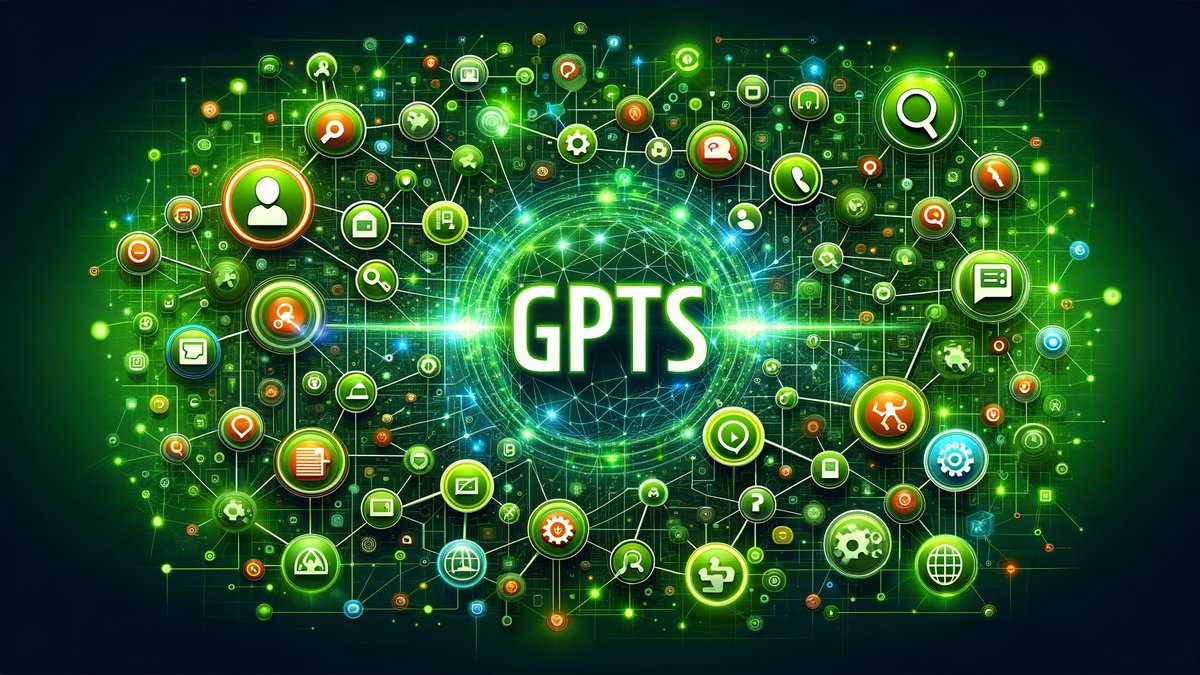The integration of Generative Pre-trained Transformers (GPTs) and Artificial Intelligence (AI) into business practices is revolutionizing industries, reshaping how companies approach market trends, customer service, and strategic planning. This article delves into the transformative potential of AI and GPTs in predicting market trends, enhancing customer service, and transforming business strategies through predictive analytics.
Predicting Market Trends with AI and GPTs
In today’s rapidly changing market, the ability to anticipate and adapt to trends can set a company apart from its competitors. AI and GPTs offer unprecedented opportunities for businesses to analyze vast amounts of data, identify patterns, and predict future market movements with remarkable accuracy.
GPTs, with their advanced natural language processing capabilities, can sift through news articles, social media posts, and financial reports to detect emerging trends. They can analyze consumer sentiment and feedback across various platforms to provide businesses with insights into potential market shifts.
AI algorithms enhance this process by identifying correlations and causations in historical data, enabling companies to predict market trends with greater precision. For example, AI can analyze past sales data, economic indicators, and consumer behavior patterns to forecast demand for products and services.
Moreover, integrating AI with predictive analytics tools allows businesses to create dynamic models that can adapt to new information, improving the accuracy of predictions over time. This proactive approach to market trends enables businesses to stay ahead of the curve, make informed decisions, and optimize their strategies for future success.
Enhancing Customer Service through AI Chatbots
Customer service is a critical component of business success, and AI-powered chatbots are transforming this domain by providing personalized, efficient, and 24/7 support. GPTs enable chatbots to understand and respond to customer queries in natural language, offering solutions that are both relevant and timely.
AI chatbots can handle a wide range of customer service tasks, from answering frequently asked questions to processing orders and providing technical support. They can learn from each interaction, continuously improving their responses and the quality of service they provide.
Furthermore, AI chatbots can analyze customer conversations to identify trends and insights, helping businesses understand common issues, preferences, and customer satisfaction levels. This information is invaluable for improving products, services, and overall customer experience.
By automating routine customer service tasks, AI chatbots allow human agents to focus on more complex and sensitive issues, enhancing the efficiency and effectiveness of customer service operations. The result is higher customer satisfaction, loyalty, and retention, contributing to long-term business growth.
Transforming Business Strategies with Predictive Analytics and GPTs
Predictive analytics, powered by AI and GPTs, is a game-changer for strategic business planning. By leveraging data, statistical algorithms, and machine learning techniques, businesses can identify the likelihood of future outcomes based on historical data.
GPTs can process and analyze unstructured data from various sources, including market reports, customer feedback, and online forums, providing businesses with comprehensive insights into industry trends, consumer behavior, and competitive landscapes.
Predictive analytics can inform a wide range of strategic decisions, from product development and marketing to supply chain management and risk assessment. For instance, businesses can use predictive models to determine the optimal time to launch a new product, target marketing efforts to specific customer segments, or identify potential supply chain disruptions before they occur.
Furthermore, predictive analytics can help businesses assess the potential impact of various strategies, enabling them to make data-driven decisions and allocate resources more effectively. This approach not only enhances operational efficiency but also increases the chances of achieving strategic objectives and driving sustainable growth.
In conclusion, the integration of GPTs and AI into business practices offers a wealth of opportunities for companies to gain a competitive edge. By harnessing the power of these technologies to predict market trends, enhance customer service, and transform business strategies, companies can navigate the complexities of the modern business landscape more effectively.
As AI and GPT technologies continue to evolve, their potential to drive business innovation and success will only increase. Businesses that invest in these technologies now will be well-positioned to lead in their industries and achieve long-term success.
The future of business is intelligent, data-driven, and customer-centric, with AI and GPTs playing a pivotal role in shaping this future. Embracing these technologies is not just a strategic move but a necessity for businesses aiming to thrive in the digital age.
For further reading on the applications of AI and GPTs in business, consider exploring resources such as the Harvard Business Review, MIT Technology Review, and industry-specific case studies. These can provide deeper insights and real-world examples of how businesses are leveraging AI and GPTs to drive innovation and success.





Leave a Reply